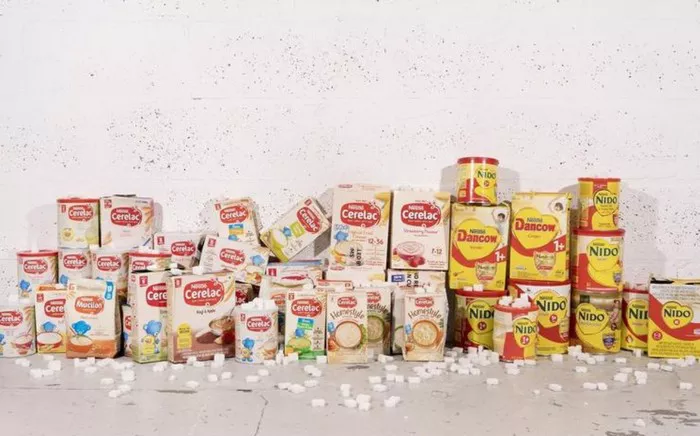Swiss multinational corporation Nestlé has come under scrutiny following revelations that it adds sugar and honey to its infant milk and cereal products sold in numerous developing countries. The findings, disclosed in a report by the Swiss investigative organization Public Eye, have ignited concerns regarding the nutritional quality of Nestlé’s baby food offerings in regions with lower incomes.
With a commanding share of 20% in the global baby food market, valued at nearly $70 billion, Nestlé wields significant influence in the industry. Its flagship brands Cerelac and Nido, which amassed over $2.5 billion in worldwide sales in 2022, stand out as some of the most widely consumed baby food products in low- and middle-income nations.
Despite positioning these products as indispensable for children’s healthy growth and development, particularly in markets across Africa, Asia, and Latin America, Nestlé’s practices have faced criticism. Public Eye’s investigation, which involved analyzing samples of Nestlé’s baby food products from various regions in Asia, Africa, and Latin America at a Belgian laboratory, uncovered the presence of added sugar – in the forms of sucrose or honey – in both Nido and Cerelac.
According to the report, nearly all Cerelac infant cereals examined contained added sugar, averaging around 4g per serving, equivalent to approximately one sugar cube, and targeting infants aged six months and above. Notably, a product sold in the Philippines recorded the highest sugar content, with 7.3g per serving.
Similarly, most of the Nido powdered milk products intended for young children aged one to three years also contained added sugar, averaging almost 2g per serving, with the maximum value of 5.3g detected in a product sold in Panama.
Comparatively, products marketed in Switzerland and Nestlé’s primary European markets are devoid of added sugar, aligning with World Health Organization (WHO) guidelines for the European region, which strictly prohibit the inclusion of added sugars or sweetening agents in any food intended for children under three years old. Although specific guidelines tailored for other regions are lacking, researchers emphasize the relevance of the European standards globally.
The WHO cautions that early exposure to sugar can instill a lifelong preference for sugary products, escalating the risk of obesity and other chronic ailments. Since 2022, the United Nations agency has advocated for a ban on added sugar in products targeting babies and young children under the age of three.
In response to the findings, Public Eye issued a statement accusing Nestlé of exploiting regulatory gaps to market sugar-laden baby foods in lower-income nations while publicly advocating against such practices. The report also alleges that Nestlé employs deceptive marketing tactics, including the engagement of medical professionals and social media influencers, to foster trust in its products among parents.


